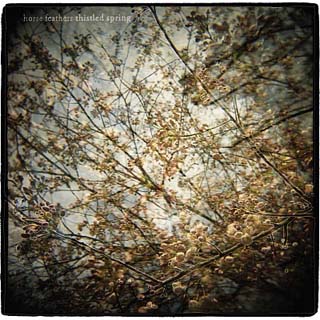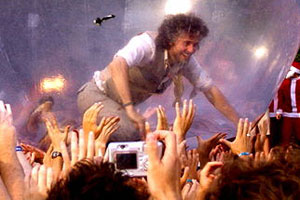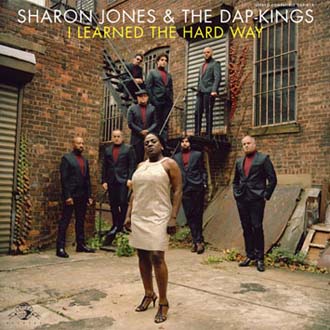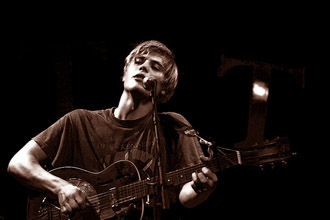
Horse Feathers
Thistled Spring
Kill Rock Stars
The latest offering from Portland indie quartet Horse Feathers is a decent follow-up to their first two albums. And while they’ve got a few new members, frontman Justin Ringle is present in full force, his voice pushing and pulling the folky, string-filled sonnets into bloom.
It’s up for debate what makes Horse Feathers so ethereal. It could be the layered cello, violin, and piano that make it pretty. The “songs may have words—enigmatic, artfully slurred words—but in many ways, the band might as well play instrumentals,” an NPR reviewer said of a 2008 HF release. And while it’s true that the band offers more orchestral feelings than clearly defined narratives, I don’t think they could lose their vocals. Ringle’s voice is its own instrument—and half the music’s power is in its constant intrigue.
Thistled Spring is mostly about questions of birth and afterlife (“Belly of June,” “The Widower,” “Heaven’s No Place”) and predicaments of the natural world (“The Drought,” “Starving Robins,” “Cascades.”) “The Drought,” true to form, is pretty elusive, but it carries one of the most recognizable storylines on the album: Glory to the night / Shade’s been hard to find / From the plains up to the peaks / This heat’s dealing fate… / Makes the burning breeze from the ground up to the trees / I hear the birds complain about the lack of rain… / It’s bearing down on me / No clouds in the sky / I hear the pines crack and cry. The song begins with a foreboding crescendo into vibrato strings and breaks into a strong rhythm of sparse banjo and bass drum.
If you liked 2008’s Words Are Dead, or if you’re a fan of Iron & Wine and Bon Iver, you’ll probably dig Thistled Spring. The title, in fact, is an apt description of the album’s 10 tracks—impressionistic lullabies barbed with staccato strings, flourishing under Ringle’s hopeful intonations.
















